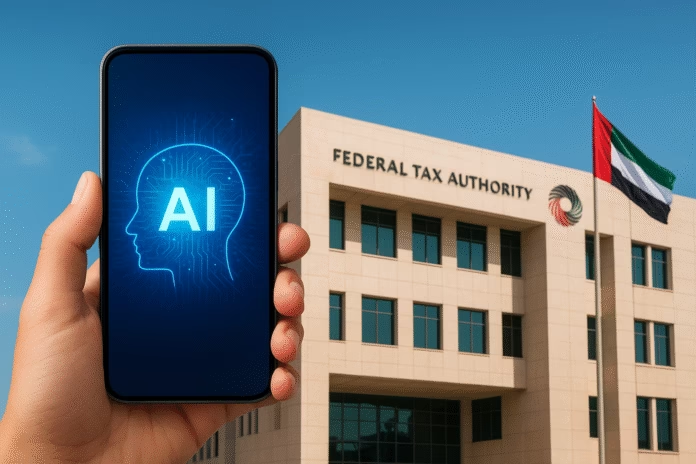The Federal Tax Authority (FTA) has taken a big step towards modernizing its tax services by launching the UAE FTA AI tools created to boost compliance and streamline processes for its employees and taxpayers across the United Arab Emirates (UAE).
FTAGPT is one of the key innovations of the FTA. However, it is an internal AI conversational engine created exclusively for the staff of this authority. Moreover, the system provides instant and accurate answers to queries on complicated tax legislation. Hence, it ensures employees can deliver reliable information swiftly.
Zahra Al Dahmani, Director of the Taxpayer Services Department at the FTA, “The goal of this project is to answer employee queries related to tax laws. With VAT, Excise Tax, and Corporate Tax forming the backbone of the UAE’s tax framework, it is important to support our employees, especially those in call centers and direct taxpayer interaction, in providing precise responses.”
TARA: AI Support for Taxpayers
Besides the internal enhancements, the FTA has also upgraded its AI-driven platform for taxpayers – TARA. However, you can access it through the official portal of the FTA. Plus, it allows people and businesses to ask questions about the tax legislation and check the status of applications on the EmaraTax system.
Since the introduction of corporate tax in 2023, TARA has been upgraded to handle a broader range of inquiries. Al Dahmani explained, “Taxpayers can now ask how to file their corporate tax return or inquire about reconsideration and objection cases related to fines”.
This ensures that the taxpayers receive the instant answer and get access to the accurate guidance created to the latest tax updates. Hence, it creates a smooth and more informed filing experience.
Proactive Taxpayer Assistance Using UAE FTA AI Tools

Besides the reactive support, the FTA is using an AI tool to meet the needs of the taxpayers. Hence, the authority can now give the targeted educational messages by analyzing common registration, filing, and payment errors. So, it helps the taxpayers to avoid mistakes and potential fines.
Al Dahmani said, “We created an AI solution to understand the different needs of the taxpayers. Based on this, we send messages that prevent problems and fines in the future.” This data-driven and proactive step shifts the FTA to a forward-thinking model. Hence, it ensures a seamless tax environment for businesses and residents in the nation.
Understanding the UAE Tax System
The modern tax framework is managed by the FTA in the UAE. Plus, it has the following three primary taxes:
- Value Added Tax (VAT) – It was introduced in 2018. VAT is a 5% tax applied at each stage of the supply chain, which is ultimately borne by the consumer. It is an important element of the revenue diversification strategy of the UAE.
- 2. Excise Tax – This tax targets specific goods, including tobacco, energy drinks, and sweetened beverages. However, the rates of 50%–100% to discourage consumption while funding public services. It was introduced in 2017.
- 3. Corporate Tax – Launched in 2023, Corporate Tax applies to net profits of most businesses, with 0% on profits up to Dh375,000 and 9% on profits above this threshold. Hence, it aligns the UAE with international tax standards and supports startups and SMEs.
Final words
The FTA is using AI to empower employees, enhance taxpayer experience, and ensure compliance through the launch of the UAE FTA AI Tools, like FTAGPT and the upgraded TARA platform. Moreover, these innovative step highlights the dedication of the UAE to use technology for efficient governance and maintaining its status as a global business hub.
Read more:
Nik Storonsky’s Relocation to UAE: A Strategic Move Amid UK Tax Reforms



